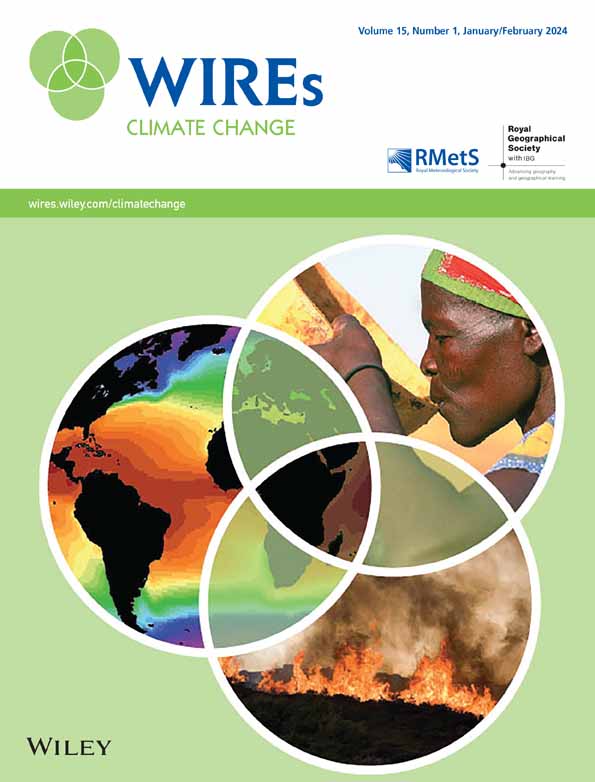Storylistening: How narrative evidence can improve public reasoning about climate change
IF 10.3
1区 环境科学与生态学
Q1 ENVIRONMENTAL STUDIES
引用次数: 1
Abstract
Stories have cognitive value—listened to carefully and expertly, they provide knowledge. That knowledge is captured and presented in narrative evidence—the product of the expert act of critical engagement with stories, and with others' engagement with stories. Storylistening is the theory and practice of gathering narrative evidence to inform decision‐making, especially in relation to public reasoning, as part of a pluralistic evidence base. Storylistening is necessary to counter the political deployment of partial, selective, or misinterpreted narrative evidence. There are four ways in which stories can contribute to public reasoning about climate change. Stories play a role in reframing the “idea” of climate change, as well as being integral to many of the new disciplines, perspectives and knowledges drawn in as relevant by that reframing. Stories create and cohere collective identities and climate change beliefs and behavior. Narrative models complement and supplement computational models, creating an ensemble of models that more adequately covers the gaps that result from only deploying big, global, generalized models. Stories play a crucial role in enabling better anticipation for decision‐making, and storylistening can enable the use of narrative evidence from narrative futures methods, as well as perhaps improve the ways scientific evidence about the future is also listened to. Incorporating storylistening into public reasoning about climate change requires the evolution of advisory systems and of the academic humanities, and can play a role in the urgent need to democratize public reasoning about climate change.

讲故事:叙事证据如何改善公众对气候变化的推理
故事具有认知价值——仔细而熟练地听,它们提供了知识。这些知识被捕捉并呈现在叙事证据中——这是专家对故事和他人对故事的批判性参与的产物。故事倾听是收集叙事证据以为决策提供信息的理论和实践,尤其是与公共推理有关的证据,作为多元证据基础的一部分。听故事是必要的,以对抗部分、选择性或误解的叙事证据的政治部署。故事有四种方式可以帮助公众对气候变化进行推理。故事在重新定义气候变化的“理念”方面发挥着作用,也是许多新学科、新视角和新知识的组成部分。故事创造并凝聚了集体身份、气候变化信仰和行为。叙述模型补充和补充了计算模型,创建了一个模型集合,更充分地弥补了仅部署大型、全局、通用模型所造成的差距。故事在更好地预测决策方面发挥着至关重要的作用,故事倾听可以使用叙事未来方法中的叙事证据,并可能改善关于未来的科学证据的倾听方式。将故事倾听纳入关于气候变化的公共推理需要咨询系统和学术人文学科的发展,并且可以在迫切需要民主化关于气候变化公共推理方面发挥作用。
本文章由计算机程序翻译,如有差异,请以英文原文为准。
求助全文
约1分钟内获得全文
求助全文
来源期刊

Wiley Interdisciplinary Reviews: Climate Change
METEOROLOGY & ATMOSPHERIC SCIENCES-
CiteScore
20.00
自引率
2.20%
发文量
58
审稿时长
>12 weeks
期刊介绍:
WIREs Climate Change serves as a distinctive platform for delving into current and emerging knowledge across various disciplines contributing to the understanding of climate change. This includes environmental history, humanities, physical and life sciences, social sciences, engineering, and economics. Developed in association with the Royal Meteorological Society and the Royal Geographical Society (with IBG) in the UK, this publication acts as an encyclopedic reference for climate change scholarship and research, offering a forum to explore diverse perspectives on how climate change is comprehended, analyzed, and contested globally.
 求助内容:
求助内容: 应助结果提醒方式:
应助结果提醒方式:


